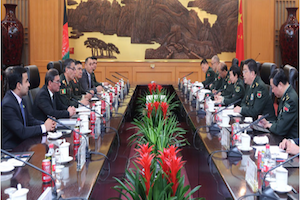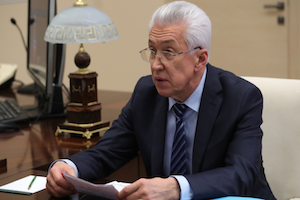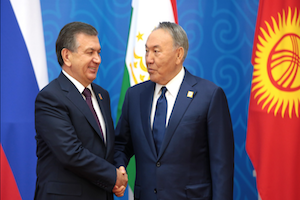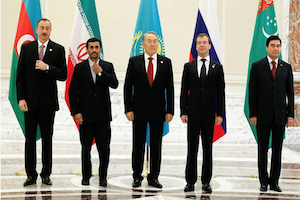China to Provide Military Assistance to Afghanistan's Badakhshan Province
By John C. K. Daly
March 9, 2018, the CACI Analyst
In December 2017 during a meeting in Beijing between Chinese Defense Minister Chang Wanquan and Afghan Defense Minister Tariq Shah Bahrami, China’s Central Military Commission vice chairman Xu Qiliang stated that China would build a military facility in Afghanistan’s northeastern Badakhshan province to “strengthen pragmatic cooperation in areas of military exchange and anti-terrorism and safeguard the security of the two countries and the region, making contributions to the development of China-Afghanistan strategic partnership of cooperation.” China’s main motive is to interdict the flow of Uyghur militants to and from Xinjiang, yet the initiative potentially has wider implications for Afghanistan and the region.

Protest Activity Grows in the North Caucasus Republics
By Emil A. Souleimanov and Huseyn Aliyev
February 26, 2018, the CACI Analyst
In 2017, protest activity has grown across the North Caucasus, just as in Russia’s other regions, as shown in a recent report by the Committee of Civil Initiatives (CCI). Socio-economic factors have shaped this trend throughout Russia’s regions, yet in the multi-ethnic North Caucasus these are coupled with a sense of nationalism-driven political discrimination and exclusion. On the eve of the forthcoming Football Championship in Russia, and as war-hardened veterans are returning from Syria to their homeland, this trend may contribute to a worsening security situation in Russia.

Deepening Central Asian Nonproliferation Partnerships
By Richard Weitz
February 22, 2018, the CACI Analyst
Preventing the proliferation of weapons of mass destruction (WMD) has been a priority for Uzbek-U.S. and Kazak-U.S. relations for decades. Uzbekistan and Kazakhstan are surrounded by nuclear weapons states and lie at the crossroads of potential WMD trafficking routes. As the U.S. struggles to keep North Korea and Iran from obtaining nuclear weapons, deny WMDs from terrorists and other actors, and sustain a major security presence in Central Asia, partnering with Uzbekistan and Kazakhstan against WMDs offers low-cost, high-yield opportunities.

Central Asian Terrorist Groups Join Jihad Against U.S. After Declaration of Jerusalem as Israel's Capital
By Uran Botobekov
February 16, 2018, the CACI Analyst
Terrorist groups from Central Asia reacted strongly to the statement by U.S. President Donald Trump on the recognition of Jerusalem as Israel’s capital. The Uzbek, Uighur, Kyrgyz, Tajik and Kazakh jihadists, who are fighting in the Middle East and Afghanistan, issued several statements with threats against the U.S. Their statements appeared almost in unison with the pronouncements of the international terrorist groups al Qaeda, the Islamic State of Iraq and Syria (ISIS) and the Taliban, who are their ideological inspiration and direct patrons.

Is there an Agreement on Caspian Sea Delimitation?
By Stephen Blank
January 25, 2018, the CACI Analyst
On December 5, 2017, Russian Foreign Minister Sergei Lavrov announced that all the key issues regarding the delimitation of the Caspian Sea had been resolved and that a treaty was being prepared for heads of state to sign in 2018 in Astana. Yet less optimistic statements from the other parties, particularly Iran, suggest that Lavrov’s assessment was premature. If Russia and Iran can nevertheless reconcile their differences on the demarcation of the Caspian, this would have important strategic consequences not only for the littoral states, but also for the Caucasus, Central Asia and the Middle East.



